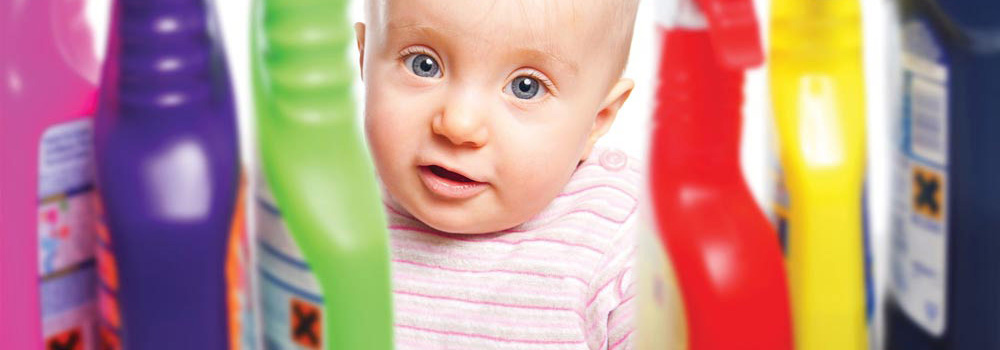Every week around 500 children under five are rushed to hospital because it's thought they have swallowed something poisonous. Most poisoning accidents involve medicines, household products and cosmetics. The most common form of poisoning is from medication.
-
Keep medicines high up and out of reach.
-
Keep anything that may be poisonous out of reach - this includes all medicines and pills, alcohol, household cleaners, liquid washing tablets and garden products, preferably in a locked cupboard.
-
Use containers that have child-resistant tops - be aware that by the age of three, many children are able to open child-resistant tops.
-
Keep all dangerous chemicals in their original containers - for example, do not store weedkiller in an old drinks bottle as a young child may mistake it for something safe to drink.
-
Discourage your children from eating any plants or fungi when outside. Avoid buying plants with poisonous leaves or berries.
-
Keep alcohol out of the reach of children.
Even a small amount can cause alcohol poisoning in children. Alcohol affects the central nervous system and symptoms can include confusion, vomiting, and seizures. The child may have difficulty breathing and flushed or pale skin. Alcohol impairs the gag reflex, which can cause choking. If your child has drunk alcohol call NHS 111 or go to A&E.
Babies and toddlers can easily swallow, inhale or choke on small items like marbles, beads, lolly sticks, balloons, peanuts, buttons, nappy sacks, plastic toy pieces, strings or cords.
PREVENTION:
-
Check on the floor and under furniture for small items and that toys with small pieces are not left out for a toddler to chew and choke on.
-
Check that toys are age appropriate, in good condition and include toy safety marks.
-
Find out more about resuscitation (CPR).
WHAT TO DO:
If your child is choking, act immediately and calmly. Make sure you do not push the object further down the throat. Encourage your child to cough. Use back blows, if they become unconscious, call for help (do not leave your child alone) and start CPR.
1
If you think your child has swallowed a harmful medicine or chemical including batteries or a magnet.
2
Find the bottle or packet and take it with you when you seek medical help.
3
Immediately contact your pharmacist, GP, go to A&E or call NHS 111.

